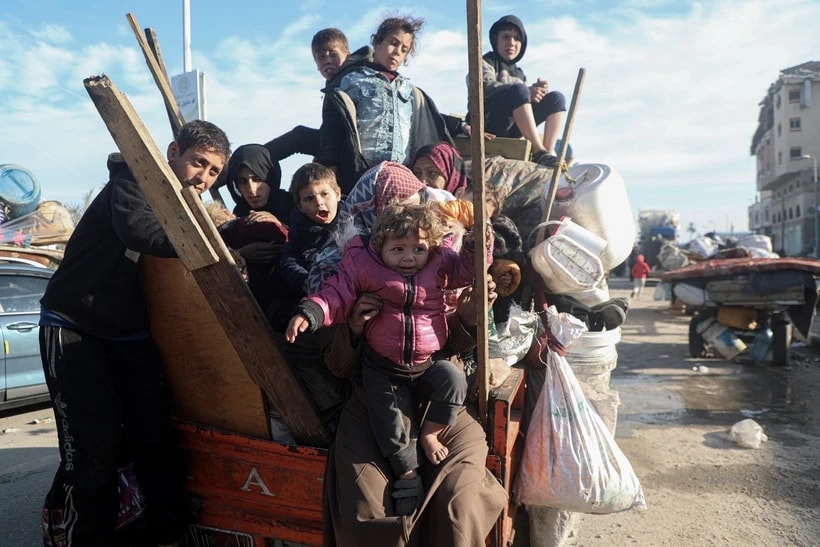Tens of thousands of Palestinians have begun returning to their homes in the northern Gaza Strip.

Tens of thousands of Palestinians began returning to their homes in Gaza City and the northern part of the Mediterranean enclave on January 27 after 15 months of forced displacement due to the outbreak of conflict between the Hamas Islamist movement and Israel.
A day earlier, Israeli Prime Minister Benjamin Netanyahu's office announced that Palestinians could begin returning to the northern Gaza Strip after Israel and Hamas reached an agreement on January 26 to release six more hostages. According to the office, Hamas will release three hostages on January 30 and three more on February 1.
In a related development, on the same day, the Arab League (AL) strongly condemned moves to push Palestinians out of their land, after US President Donald Trump proposed a plan to move Palestinians in Gaza to Egypt and Jordan.
"The displacement and expulsion of Palestinians from their lands can only be called ethnic cleansing. Attempts to expel Palestinians from their lands, whether through displacement, annexation or settlement expansion, have proven to be failures in the past," the AL Secretariat said in a statement.
In the same vein, the Egyptian Foreign Ministry issued a statement rejecting any violation of the inalienable rights of the Palestinian people, whether through settlement or land annexation, or through depopulation through forced displacement or expulsion of Palestinians from their lands.
After 15 months of conflict, President Trump said the Gaza Strip has become a “destroyed place.” He wants Egypt and Jordan to take in Palestinians from Gaza. The relocation of Gaza residents could be temporary or permanent.
However, since the conflict between Hamas and Israel broke out in October 2023, both Egypt and Jordan have warned of plans to relocate Palestinians from Gaza to neighboring Egypt and from the West Bank to Jordan.
Egyptian President Abdel Fattah El-Sisi has repeatedly stressed that any displacement is a “red line” that “destroys the Palestinian cause of establishing an independent state” and could threaten Egypt’s national security. On January 26, the Egyptian Foreign Ministry called for the implementation of the two-state solution, warning that it would be impossible if Palestinians were expelled from their territories.
Also on January 26, the Egyptian Cabinet said that the country's Tahya Misr Foundation provided a convoy carrying 4,200 tons of food and humanitarian aid, along with 11 ambulances with necessary equipment to provide relief to Palestinians in Gaza. This is the fifth aid and relief mission carried out by the Misr Foundation and social organizations.
The United Nations Office for the Coordination of Humanitarian Affairs said more than 4,200 aid trucks entered Gaza in the first six days since Israel and Hamas reached a ceasefire deal on January 19 through the mediation of Egypt, Qatar and the United States.
On the same day, the Indonesian Mosque Council (DMI) pledged to build 10 semi-permanent mosques in Gaza, following the recently reached ceasefire.
In a press release, DMI Chairman Jusuf Kalla stressed that the initiative represents solidarity with the Palestinian Muslim community affected by the protracted conflict. DMI has also been in contact with representatives of the Hamas government that currently controls the Gaza Strip, to ensure the smooth implementation of the program.
TH (according to VNA)